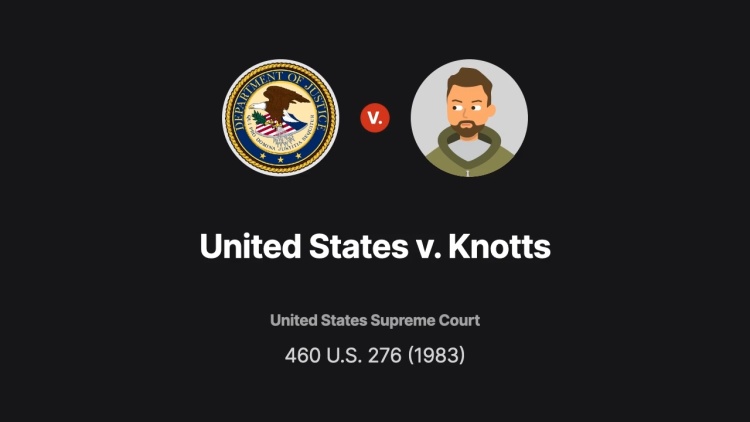United States v. Knotts
United States Supreme Court
460 U.S. 276 (1983)
- Written by DeAnna Swearingen, LLM
Facts
Chemical manufacturer 3M Company informed a Minnesota Bureau of Criminal Apprehension narcotics officer that Tristan Armstrong (defendant) was stealing chemicals used to make drugs. Police began investigating Armstrong and learned that he purchased additional chemicals from Hawkins (Hawkins) Chemical Company and delivered them to Darryl Petschen (defendant). Hawkins allowed police to place a transmitter called a beeper inside a container of chloroform, which they gave to Armstrong during his next purchase. Using the beeper and visual surveillance, police followed the container to Knotts’ (defendant) cabin in Wisconsin. Over the next three days, the police gathered enough evidence to obtain a search warrant. Inside the cabin, they found a fully stocked drug laboratory. The defendants were charged with conspiracy to manufacture controlled substances in violation of 21 U.S.C. § 846 (1976) and brought before the United States District Court for the District of Minnesota. Armstrong pled guilty and testified against Knotts and Petschen at trial. Knotts filed a motion to suppress on the grounds that the use of the beeper without a warrant violated the Fourth Amendment. The motion was denied, and Knotts was convicted and sentenced to five years in prison.
Rule of Law
Issue
Holding and Reasoning (Rehnquist, J.)
Concurrence (Stevens, J.)
What to do next…
Here's why 907,000 law students have relied on our case briefs:
- Written by law professors and practitioners, not other law students. 47,100 briefs, keyed to 996 casebooks. Top-notch customer support.
- The right amount of information, includes the facts, issues, rule of law, holding and reasoning, and any concurrences and dissents.
- Access in your classes, works on your mobile and tablet. Massive library of related video lessons and high quality multiple-choice questions.
- Easy to use, uniform format for every case brief. Written in plain English, not in legalese. Our briefs summarize and simplify; they don’t just repeat the court’s language.





